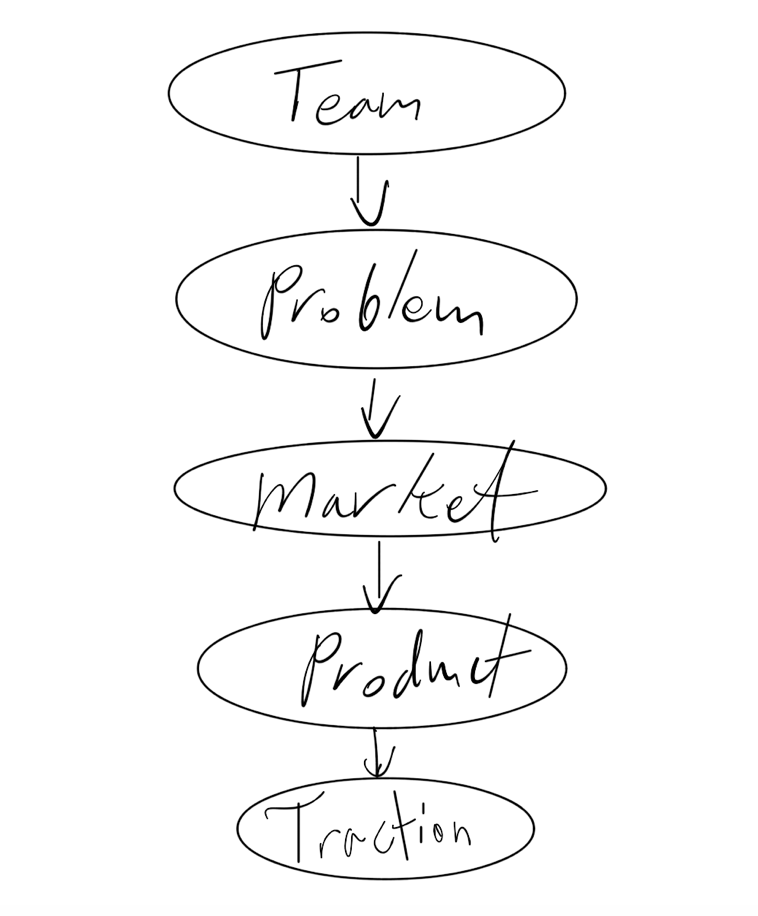
All I can say is just do it; if you are thinking about it, it is worth trying to get in. Apply ASAP, don’t delay it. There are no guarantees when applying but it is worth it. Y Combinator is more open then you think if they see a great idea and team. The Y Combinator team is willing to invest early. They invest in startup ideas and people. They take risks in new markets and invest a lot of the time when other investors don’t understand the market. To apply to Y Combinator go here.
Application
Most important things to show on your application:
- You can build stuff fast.
- Do you have some users using something you built? If not start building!
- Have you done something amazing in the past? (E.g. Create Django?)
- Make sure there are two of you at least (founders). Founder dynamics is important, if you have been friends or been working together for several years, then there is a great dynamic. Friends general won’t just walk away from something that will take the time to build. Startups can be stressful, show that your team can handle the stress of it.
- Make sure you put a video attachment in your application, it will help.
- Y Combinator looks for good team dynamics.
- Conviction in what you are doing.
- Talk about something you have done amazing in the company or in your life that really stands out.
- Talk about the passion and idea to the partners.
- Know your market size.
- Know your competition.
- Talk about the vision of your product.
- Is there something driving you do build this company, startups are the cool thing to do but generally persistence pushes companies forward and having the right motivation will keep you going. Have the right motivation if you are starting a startup.
Pitching in Person
- The first 30 seconds are super important.
-
Google the top 25 questions Y Combinator will be asking at a zoom or live interview.Like these:
-
There is that initial question: What do you guys do?
-
What is the about of time you will need to get to the next stage?
-
- Have one person be the presenter during your very fast pitch in person.
- Practice, practice, practice before meeting with the Y Combinator partners. Ask yourself’s questions the night before being interviewed, think about questions you think you won’t answer well, it helped us, my cofounder and I more than we thought it would. It is fast interview questions, rapid fire that will prep you so you are sharp for this kind of fast interviewing.
- Find one or more founders that went through YC to talk too. We found two, one of them was the founder of Reddit, Alexis. We also found another founder who really helps us understand the process the day before our in-person interview. Insight into the fast questions you will get will help you think fast on your feet.
- Record yourself via video and audio, and listen to it over and over. (Use Evernote to record the audio or something else.)
- Put yourself in the partners shoes, the partners schedules are jam packed so answer accurately.
- Again talk slow!
-
The partners will go off script … be prepared to go off script.
-
Have your numbers down!
-
Have your market, customer values, growth, LTV down and know it.
-
Do some jumping jacks or something physical to get the nerves out before you go into the interview.
-
Again, listen to a recorded pitch over and over and over again of your pitch before you go in.
-
Think positive so you can go in confident.
-
You need a two minute tag line that makes the partners and everyone connect with you/
-
Put your company and roll in the zoom link so they know who you are.
- e.g: Daniel Kivatinos CEO StartupName.com
-
If you have a cofounder you don’t want to have a cofounder cutting you off, have smooth handoffs for questions so work that you workout beforehand.

Alexis came to drchrono’s office talking to the early drchrono team before we pitched Y Combinator.
- One way to think about your pitch to the Y Combinator is this way, all of these can be shuffled around, depending. If you have fast growth shuffle things around and assume you only have 10 minutes to pitch:

- If you have the chance to pitch in person, be sure to practice your pitch over and over.
- Record your pitch and listen to it several times to see where you are strong and you’re not strong.
- You need to be able to communicate, you need to convey information very fast, practice.
- Have you done a lot with very little? No investors, bootstrapped?
-
Show the product if you have one!
-
Have a demo? Load demo data and be ready to present it!
- The partners see a ton of pitches, so have a tee shirt on with your logo. Well worth the branding and you can wear it anytime.
- Sometimes context – “we are the X of X” helps people understand what you are doing.
-
Highlight something impressive, featured in the App Store? Win an award? Have some funding?
-
Have you burned your boats?
- The pitch:
- Team: Talk about your backgrounds, the co-founders.
- Have a good intro.
- Why you?
- The team is super important so introduce yourselves in 30 seconds.
- They want to make sure the founders get along and there isn’t an internal power struggle.
- What is something you were super proud of?
- What is your story? (each co-founder) Did you work for Apple? Do you have a Ph.D.?
- If it is a company that is big you worked at but people don’t know the name, just say the company is the second largest X in the world. The company I worked at made X billion per year.
- Who is the technical co-founder? Who is the CEO?
- Michael my co-founder of drchrono talks about the “Humble Brag“
- How long have the founders known each other? If you are friends you will tough it out when things get tough.
- Problem: What is the problem?
- Market: How big is the market? Is there competition? Is there a large amount of capital needed to start?
- Product: Can you describe the company in 1 minute.
- Is there tech risk?
- Traction: Is this just an idea? Prototype? Have real users?
- Do you have revenue? Do you have growth month over month?
- Early fast growth helps.
- Team: Talk about your backgrounds, the co-founders.
- We have X number of users, if you have traction, be sure to put that up!
The partners will ask questions and throw curve balls.
One tip: Be confident and walk up to others at Y Combinator and say hi! There are some really amazing founders around at YC.
Be sure to listen to this great lecture from Sam Altman from Startup School
More on pitching and demoing can be found here.